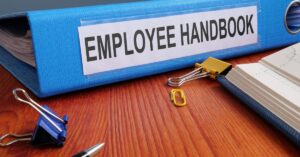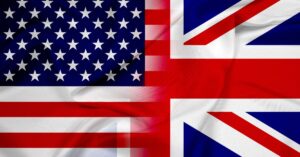You’ve built something special in your home market. Your product works, customers love it, and your team is ready to scale. Now you’re looking at the United States, with its massive market and unparalleled funding ecosystem. But here’s the problem: You’re not just expanding to a new country. You’re entering a complex web of 50 different state markets, each with its own regulations, business culture, and competitive landscape.
This is where many international founders make a critical mistake. They treat US market entry like checking boxes on a to-do list: Register a Delaware C-Corp? Check. Apply to an accelerator? Check. Hire a US sales rep? Check. Three months later, they’re burning through capital in Silicon Valley while their actual customers are concentrated in Boston’s biotech corridor or New York’s financial district.
The truth is, choosing the right accelerator isn’t about prestige or demo day photos for your LinkedIn. It’s about finding a program that understands your industry, connects you to the right networks, and helps you navigate the operational complexities that kill most international expansions before they gain traction. With the global startup accelerator market reaching $5.3 billion in 2024 and projected to hit $9.54 billion by 2033, the ecosystem has become more specialized, more competitive, and ultimately more valuable for companies that choose wisely.
This guide cuts through the noise. We’ll show you which accelerators actually deliver for international companies, how to match programs with your industry and stage, and most importantly, what you need to have in place before you apply so you don’t waste three months of runway on the wrong program.
Understanding the US Accelerator Landscape
![]()
For international companies expanding to America, startup accelerators offer far more than capital. They provide structured pathways through the complexities of US market entry, regulatory compliance, and customer acquisition. However, the American accelerator ecosystem differs significantly from international programs in ways that directly impact your expansion strategy.
What Makes US Accelerators Different
Understanding these fundamental differences helps international founders make strategic decisions about program selection and timing.
Most top-tier US accelerators operate on an equity exchange model, taking 5-7% equity in exchange for seed funding ranging from $120,000 to $500,000 and intensive mentorship. This differs markedly from many European accelerators that offer grants or government-backed funding with minimal equity requirements. For international companies already operating profitably at home, giving up equity for what amounts to operational support can feel like an expensive learning curve.
American accelerators typically run fixed duration, cohort-based programs lasting 3-6 months with strict start and end dates. International companies must plan around these schedules, often requiring founders to relocate temporarily or permanently. Unlike the more flexible, rolling admission programs common in other regions, US accelerators demand full commitment during specific timeframes.
Programs culminate in Demo Days where startups pitch to rooms filled with hundreds of investors. For international companies, this creates unique opportunities to access American venture capital but requires understanding US pitch culture and investor expectations. The pitch style that works in London or Berlin often falls flat with Sand Hill Road investors who expect aggressive growth projections and clear paths to billion-dollar outcomes.
The real value often lies in alumni networks and mentor connections. Y Combinator’s network of over 5,000 companies or Techstars’ global network of thousands of founders, mentors, and investors provides long-term strategic value that extends far beyond the program duration. These networks can open doors that would otherwise remain closed for years.
Many accelerators have experience supporting international founders with visa requirements, but programs vary significantly in their ability to sponsor or facilitate O-1, E-2, or L-1 visas essential for US operations. Some programs have dedicated immigration support, while others simply provide guidance. Understanding these visa pathways early is critical for international teams.
“International companies often underestimate how accelerators function as market entry vehicles in the US,” explains Joanne Farquharson, President & CEO of Foothold America. “The right accelerator doesn’t just provide funding and mentorship. It validates your business model to American investors, connects you to distribution channels, and helps you navigate employment law, corporate structure, and operational compliance that international founders typically struggle with.”
The Numbers Behind Accelerator Success
Understanding accelerator statistics helps international companies evaluate program quality and expected outcomes. According to industry research, the global startup accelerator market is experiencing significant growth, with projections showing expansion from $5.3 billion in 2024 to $9.54 billion by 2033 at a compound annual growth rate of 6%.
For international companies, these numbers carry specific implications.
Top-tier programs like Y Combinator accept just 1-3% of applicants, making acceptance rates comparable to elite universities. International companies often face additional scrutiny regarding their commitment to US market focus. The application process alone can take dozens of hours, and many international founders underestimate the preparation required to stand out in such competitive selection processes.
Y Combinator companies have collectively raised over $600 billion, with portfolio companies achieving numerous public listings and hundreds of private companies valued above $150 million. Techstars alumni have built companies with a combined market capitalization exceeding $116 billion. These aren’t just impressive statistics; they demonstrate the caliber of networks and resources these programs provide access to.
Accelerator-backed startups show significantly higher survival rates than non-accelerated companies. Studies indicate that accelerator graduates are 23% more likely to survive past three years and raise follow-on funding. For international companies already operating profitably, this suggests that the right accelerator can dramatically reduce the risk of US market entry failure.
According to recent data, B2B software and services dominate accelerator portfolios at approximately 43%, followed by fintech at 19% and healthcare at 11.5%. International companies should align their industry focus with accelerator specializations to maximize the value of mentorship, connections, and curriculum.
Top General Accelerators: The Elite National Programs
These flagship programs accept startups across all industries and have established track records of building unicorns. For international companies, these accelerators offer the strongest brand recognition, most extensive alumni networks, and highest valuations upon graduation.
Y Combinator: Silicon Valley’s Gold Standard
Location: Silicon Valley (San Francisco Bay Area), California
Investment: $500,000 total ($125,000 for 7% equity + $375,000 on uncapped SAFE with MFN)
Duration: 3 months, two cohorts yearly
Notable Alumni: Airbnb, Stripe, Coinbase, DoorDash, Dropbox, Reddit
Founded in 2005, Y Combinator pioneered the modern accelerator model and remains the most prestigious program globally. YC has invested in over 5,000 companies achieving combined valuations exceeding $600 billion. The program operates twice yearly with highly selective acceptance (under 2% admission rate).
For international companies, YC offers unparalleled benefits. The YC badge alone opens doors with American investors, the alumni network provides immediate market credibility, and the intensive three-month program forces rapid iteration and product-market fit validation. The program’s “startup school” provides additional resources for founders at any stage.
However, YC’s Silicon Valley location requires significant commitment from international founders. Most successful international YC companies establish permanent US operations following graduation. YC provides guidance on US entity formation through partners, but international companies should plan for incorporation decisions and employment compliance before arrival.
Techstars: The Global Network Leader
Location: 40+ cities globally including Boulder, NYC, Boston, Seattle, Austin
Investment: $120,000 for 6% equity
Duration: 13 weeks
Notable Alumni: SendGrid, ClassPass, PillPack, DigitalOcean, Twilio
Techstars operates accelerator programs worldwide with both industry-specific and geography-focused cohorts. This global presence makes Techstars particularly attractive for international companies seeking to maintain operations in multiple markets while accessing US networks and capital.
Each Techstars program connects founders with approximately 100 mentors, including successful entrepreneurs, investors, and corporate executives. The “Techstars for Life” philosophy means alumni maintain access to the network indefinitely, providing ongoing value long after the 13-week program concludes.
For international founders, Techstars’ distributed model offers flexibility. Programs in multiple US cities mean you can choose locations aligned with your industry focus and target market. The organization’s extensive experience with international founders means they understand visa challenges, cultural differences, and operational complexities that many other programs overlook.
500 Global (formerly 500 Startups): The Portfolio Powerhouse
Location: Silicon Valley (Palo Alto, California) with global programs
Investment: $150,000 for 6% equity
Duration: 4 months
Notable Alumni: Canva, Udemy, Credit Karma, Grab, Talkdesk
500 Global’s flagship accelerator has invested in thousands of companies across 80+ countries, making it one of the most internationally diverse programs. The accelerator focuses heavily on growth tactics, customer acquisition, and go-to-market strategies that help startups scale rapidly.
The program’s emphasis on design, distribution, and data makes it particularly valuable for consumer-facing companies and B2B SaaS startups. 500 Global’s extensive mentor network includes operators from companies like Google, Facebook, and LinkedIn who provide tactical advice on scaling operations.
For international companies, 500 Global’s global perspective means mentors and partners understand cross-border operations, international payment systems, and multi-market expansion. The program has specific expertise in helping companies expand from one geography to another, making it ideal for businesses planning multi-region growth strategies.
MassChallenge: The Zero-Equity Option
Location: Boston, MA (headquarters) with locations in Texas
Investment: Zero equity, competition for cash prizes up to $1M+
Duration: 4 months
Notable Alumni: Ginkgo Bioworks, Nima, Plastiq
MassChallenge stands out as the only major accelerator taking zero equity from participating startups. This non-profit model attracts founders who want accelerator benefits without diluting ownership, making it particularly attractive for already-profitable international companies or those with strong cap tables.
The program operates through a competition model where startups compete for substantial cash prizes rather than standard seed investments. Top performers can win hundreds of thousands in non-dilutive funding, providing capital without equity exchange.
Based in Boston, MassChallenge provides exceptional access to the city’s biotech, healthcare, and fintech ecosystems. For European companies, particularly those from the UK, Boston’s geographic proximity and cultural similarities can ease the transition to US operations while still providing access to American investors and customers.
Industry-Specific Accelerators: Specialized Support for Targeted Sectors
For international companies with clear industry focus, specialized accelerators often provide more relevant mentorship, connections, and resources than general programs. These vertical-specific programs understand your market’s unique challenges and regulatory requirements.
Fintech & Financial Services
Location: New York City
Investment: Varies by cohort
Duration: 12 weeks
Focus: Payment infrastructure, banking technology, regulatory technology
Located in the heart of New York’s financial district, The Mint connects fintech startups directly with major financial institutions including banks, insurance companies, and payment processors. For international fintech companies, this program provides unique access to partnerships and pilot programs with institutions that typically take years to engage.
The regulatory guidance proves invaluable for international founders navigating US financial services compliance. Banking regulations vary significantly by state, and The Mint’s network of compliance experts and legal partners helps startups avoid costly regulatory mistakes.
[Barclays Accelerator](https://www.barcl aysaccelerator.com/) (powered by Techstars)
Location: New York City and London
Investment: $120,000 for 6% equity
Duration: 13 weeks
Focus: Financial technology, banking innovation
This corporate-backed accelerator combines Techstars’ mentorship model with Barclays’ extensive banking network. International companies gain access to Barclays’ global operations, potential pilot opportunities, and introductions to other financial institutions.
Healthcare & Biotech
Location: New York and San Francisco
Investment: $250,000
Duration: 4 months
Focus: Synthetic biology, biotechnology, life sciences
IndieBio provides not just funding but also laboratory space, scientific equipment, and technical expertise. For international biotech companies, accessing US lab facilities and scientific networks often represents the biggest barrier to market entry, making IndieBio’s infrastructure support particularly valuable.
The program connects founders with scientists, investors, and potential partners specifically focused on life sciences. This specialized network proves far more valuable than general accelerator connections for companies working on drug discovery, diagnostics, or agricultural biotechnology.
Location: New York City
Investment: $20,000 for 5-8% equity
Duration: 3 months
Focus: Healthcare IT, digital health, medical devices
Blueprint Health focuses exclusively on healthcare companies that don’t require FDA approval, making it ideal for health IT, telemedicine, and wellness technology companies. The program provides connections to healthcare systems, payers, and provider organizations that serve as potential customers and partners.
For international healthcare companies, understanding the US healthcare system’s complexity often determines success or failure. Blueprint Health’s mentor network includes hospital administrators, insurance executives, and healthcare investors who help founders navigate this complexity.
Climate Tech & Clean Energy
Location: Honolulu, HI and San Francisco, CA
Investment: Up to $1M in grant funding
Duration: 18 months
Focus: Climate change solutions, clean energy, sustainable infrastructure
Elemental Excelerator stands apart by providing substantial non-dilutive funding to climate tech companies. For international companies with working solutions to environmental challenges, this program provides patient capital and extensive deployment support.
The accelerator connects startups with utilities, municipalities, and corporations seeking to implement climate solutions. These pilot programs and partnerships often lead to significant revenue before companies need to raise traditional venture capital.
AI & Machine Learning
Location: Seattle, WA
Investment: $150,000-$300,000
Duration: Ongoing support
Focus: Artificial intelligence, machine learning applications
Backed by the Allen Institute for Artificial Intelligence, this program provides access to cutting-edge AI research, computational resources, and a network of leading AI scientists. For international AI companies expanding to the US, access to top-tier technical talent and research partnerships often proves more valuable than traditional accelerator resources.
The Seattle location provides proximity to both tech giants like Microsoft and Amazon, as well as the University of Washington’s renowned computer science program. This ecosystem offers exceptional recruiting opportunities for technical positions.
Regional Accelerators: Location-Based Programs
Beyond Silicon Valley, regional accelerators provide access to specific markets, industries, and networks. For international companies, choosing the right geographic location can significantly impact customer acquisition and partnership development.
East Coast Innovation
ERA (Entrepreneurs Roundtable Accelerator)
Location: New York City
Investment: $100,000-$150,000
Duration: 4 months
Focus: B2B technology, enterprise software
Based in New York, ERA provides exceptional access to enterprise customers, Fortune 500 partnerships, and East Coast investors. For international B2B companies, proximity to major corporate headquarters often accelerates sales cycles and partnership discussions.
New York’s diverse economy means ERA companies can access customers across multiple industries including finance, media, healthcare, retail, and professional services. This industry diversity proves particularly valuable for horizontal B2B solutions applicable across sectors.
Southern Innovation Hubs
Location: Austin, TX
Investment: $120,000 for 6% equity
Duration: 13 weeks
Focus: General technology, with strength in enterprise software
Austin’s rapidly growing tech scene provides a more affordable alternative to coastal markets while still offering access to major tech companies like Oracle, Tesla, and numerous enterprise software firms. For international companies seeking to minimize costs while establishing US operations, Austin offers strong talent, lower overhead, and a business-friendly regulatory environment.
Texas’s economic development incentives and corporate-friendly policies make it attractive for international companies considering permanent US headquarters locations. Many Techstars Austin alumni establish long-term operations in the city post-program.
Midwest Opportunities
Location: Multiple Midwest cities (Milwaukee, Minneapolis, Indianapolis)
Investment: $100,000 for 6-9% equity
Duration: 12 weeks
Focus: B2B technology, healthcare, agtech
Gener8tor’s multi-city model provides access to Midwest markets often overlooked by coastal accelerators. For international companies in industries like manufacturing technology, agricultural innovation, or healthcare, Midwest locations offer proximity to end customers and lower operational costs.
The program’s corporate partnership model connects startups directly with Fortune 500 companies headquartered in the Midwest, including those in manufacturing, agriculture, healthcare, and financial services. These corporate relationships often lead to pilot programs, strategic investments, and acquisition opportunities.
Operational Considerations for International Founders

Beyond selecting the right accelerator, international companies must address critical operational and legal requirements for successful US market entry. These operational foundations often determine whether accelerator participation translates into sustained US success or becomes an expensive distraction.
US Entity Formation and Corporate Structure
Most accelerators require incorporation in the US before program commencement, typically as Delaware C-Corporations. This structure offers well-established corporate law precedents and investor familiarity, but international founders must understand several key considerations.
Delaware C-Corp formation requires registered agent services, annual franchise taxes, and compliance filings. International companies should engage corporate attorneys familiar with cross-border structures, particularly when maintaining parent companies in home countries while establishing US subsidiaries.
Foreign ownership considerations require additional documentation and may trigger beneficial ownership reporting requirements. The complexity increases when multiple international founders maintain ownership, requiring careful attention to tax treaties, transfer pricing, and withholding requirements.
Employment and Hiring Considerations
Hiring US employees during or after accelerator programs requires understanding American employment law fundamentals that differ significantly from international practices.
At-will employment operates differently than employment protections common in many countries. While employers can terminate employees for any legal reason, comprehensive employee handbooks remain essential for compliance and protection. International founders often underestimate the importance of documented policies and procedures.
American health insurance complexity surprises many international founders. Unlike single-payer systems common elsewhere, US employers typically provide health insurance as a core benefit, with costs often exceeding 25-30% of base salary. Understanding COBRA requirements for continuing health coverage after employment ends proves critical for compliance.
State-specific regulations add complexity. California, New York, Massachusetts, and other states impose additional requirements on employers beyond federal law. Pay transparency laws, paid leave requirements, and minimum wage rules vary significantly by location, requiring careful attention to where employees work.
The Fair Labor Standards Act establishes minimum wage, overtime, and classification requirements that confuse international employers unfamiliar with exempt versus non-exempt distinctions. Misclassification carries significant penalties, making proper legal guidance essential from the outset.
Banking and Financial Infrastructure
Establishing US banking relationships proves surprisingly difficult for international founders. Most banks require US addresses, Social Security numbers or ITINs, and in-person visits to open business accounts.
Mercury, Revolut, and other fintech-forward banks have streamlined processes for startup banking, but still require proper US entity formation and founder identification. International founders should allocate several weeks to complete banking setup, including obtaining EINs and establishing credit history.
Payment processing for international founders adds complexity. Stripe, PayPal, and other payment processors have specific requirements for international beneficial owners, requiring additional documentation and sometimes holding funds during initial verification periods.
Tax and Compliance Requirements
US tax obligations differ dramatically from systems in most countries. Federal, state, and sometimes local taxes all require separate filings and compliance. Sales tax requirements have expanded significantly following the Wayfair decision, with economic nexus thresholds triggering obligations across multiple states.
International companies maintaining operations in home countries while establishing US presence face complex transfer pricing requirements. Arms-length pricing for intercompany transactions requires documentation and can trigger additional tax obligations if not properly structured.
Quarterly estimated tax payments, payroll tax deposits, and annual filings all have specific deadlines and penalties for non-compliance. Many international founders partner with US expansion specialists to manage these ongoing compliance requirements while focusing on business development.
Cultural Adaptation and Business Etiquette
Success in US accelerators and broader American market requires understanding cultural differences in business communication and expectations. International founders should familiarize themselves with American business etiquette including directness in communication, informal workplace culture, and aggressive growth expectations.
American business culture emphasizes speed, scalability, and market dominance rather than sustainable profitability. Investors expect aggressive growth projections and quick expansion rather than the measured, profitable growth common in many European markets. This cultural difference affects pitch style, hiring decisions, and strategic planning.
Networking operates differently in the US, with more casual relationship building and transactional introductions. LinkedIn connections and email introductions carry significant weight, and the “pay it forward” culture means successful founders routinely help others with introductions and advice.
Understanding the American work calendar and expectations around holidays like Thanksgiving through New Year helps international founders build strong team relationships and manage productivity cycles. The intensity of US startup culture, particularly in accelerator programs, can surprise founders accustomed to more balanced work environments.
Conclusion: Choosing Your Path to US Market Success
America’s startup accelerator ecosystem offers international companies unprecedented opportunities to access capital, expertise, and networks essential for successful US market entry. However, choosing the right program requires strategic analysis of your industry focus, geographic priorities, growth stage, and operational readiness.
The most successful international companies approach accelerators as comprehensive market entry vehicles, not just funding sources. They prepare thoroughly by researching specific programs, understanding US corporate structures and employment requirements, and building operational infrastructure enabling them to capitalize on accelerator opportunities immediately.
Whether you choose Y Combinator’s prestige in Silicon Valley, Techstars’ global network, industry-specific programs focused on your vertical, or regional accelerators in markets where your customers concentrate, success requires treating US expansion as a primary strategic priority rather than optional growth opportunity.
At Foothold America, we’ve helped hundreds of international companies successfully navigate US expansion, whether through accelerator programs or independent market entry. Our comprehensive Employer of Record services, PEO solutions, and talent acquisition support enable international founders to focus on product development and market validation while we handle employment compliance, benefits administration, and operational infrastructure.
Ready to explore how Foothold America can support your US accelerator journey or independent market entry? Contact our team of specialists today to discuss your specific situation and discover how our services simplify American operations while protecting you from costly compliance mistakes.
Frequently Asked Questions About US Reference Checks
Get answers to all your questions and take the first step towards a US business expansion.
Former employers can legally share factual, truthful information about your employment including dates of employment, job title, job duties, salary, attendance record, documented performance issues, and reason for departure. However, according to research on reference immunity laws, most US employers limit references to basic verification due to defamation concerns. State laws vary significantly—32 states provide qualified immunity for employers providing good-faith references, while others maintain stricter liability standards. The key legal requirement is truthfulness: former employers who provide false or misleading information face defamation liability.
Yes, you can legally conduct reference checks at any stage of the hiring process, but many US employers wait until after extending conditional offers. This timing protects against discrimination claims if candidates believe negative reference information caused hiring decisions. Conducting references before final candidate selection creates greater legal exposure. Document clearly that hiring decisions were based on qualifications, interviews, and assessments obtained before reference information. Understanding American business etiquette throughout the hiring process helps international companies navigate these cultural expectations.
Immediately document that the information was disclosed voluntarily without solicitation and will not be used in hiring decisions. Do not record the protected information in candidate files shared with decision-makers. Focus hiring decisions strictly on job-related qualifications. If you don’t hire the candidate, ensure you can clearly demonstrate that the decision was based entirely on legitimate, non-discriminatory factors. Consider consulting employment counsel before making any hiring decision when unsolicited protected characteristic information has been disclosed.
Develop baseline reference check protocols that comply with the strictest state requirements across all jurisdictions where you operate, or create state-specific protocols if you have sophisticated HR systems. Generally, the laws of the state where the former employee worked govern what former employers can share, while the laws of the state where your candidate will work govern your reference check conduct. Many international companies partner with US HR advisory firms like Foothold America that provide ongoing guidance on state-specific compliance requirements. Our Exclusive Talent Acquisition service manages these complexities for you, conducting compliant reference checks across all US jurisdictions.
Telephone reference checks generally create less liability than email because they produce no written record that could be used as defamation evidence if information proves false. However, telephone references require careful contemporaneous note-taking to document information received. Email references create clear documentation but increase liability exposure if statements are defamatory. According to employment law guidance, many US employers prefer telephone calls with detailed notes immediately after conversations. Whichever method you use, focus on factual, job-related questions and document thoroughly.
GET IN TOUCH
Contact Us
Complete the form below, and one of our US expansion experts will get back to you shortly to book a meeting with you. During the call, we will discuss your business requirements, walk you through our services in more detail and answer any questions you might have.








